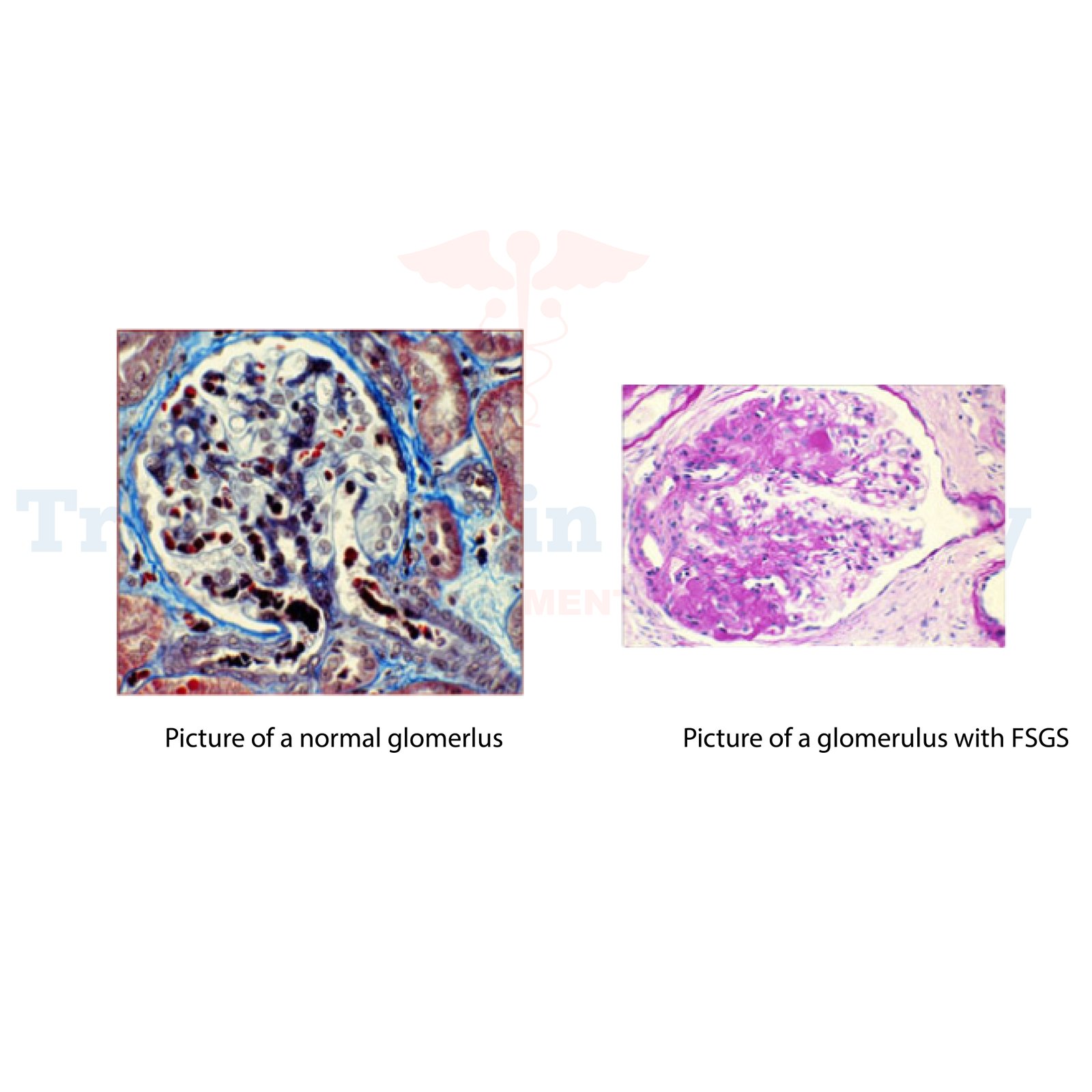What is Focal Segmental Glomerulosclerosis (FSGS)?
Focal Segmental Glomerulosclerosis, often abbreviated as FSGS, is a rare kidney disorder that affects the filtering units of the kidney known as glomeruli. In FSGS, scar tissue develops on parts of the glomeruli,
leading to impaired kidney function. This condition can cause proteinuria (excessive protein in the urine), which can further progress to chronic kidney disease or even kidney failure if left untreated.
Side effects of Focal Segmental Glomerulosclerosis (FSGS):
The most common symptoms of FSGS include:
- Proteinuria: Excretion of large amounts of protein in the urine.
- Swelling (edema): Especially noticeable in the legs, ankles, feet, or face due to fluid retention.
- Hypertension (high blood pressure): Resulting from impaired kidney function.
- Decreased kidney function: Leading to symptoms like fatigue, weakness, and difficulty concentrating.
- Elevated cholesterol levels: Increasing the risk of cardiovascular complications.
How is Focal Segmental Glomerulosclerosis (FSGS) diagnosed?
Diagnosing Focal Segmental Glomerulosclerosis typically involves a combination of medical history review, physical examination, laboratory tests, and imaging studies. Some common diagnostic tests for FSGS include:
- Urine tests: To detect proteinuria and other abnormalities.
- Blood tests: To evaluate kidney function, measure levels of waste products, and assess electrolyte balance.
- Kidney biopsy: A procedure where a small sample of kidney tissue is taken and examined under a microscope to confirm the diagnosis and determine the extent of damage.
- Imaging studies: Such as ultrasound or CT scan to assess the size and structure of the kidneys.
Potential treatments of Focal Segmental Glomerulosclerosis (FSGS):
The treatment approach for Focal Segmental Glomerulosclerosis aims to slow the progression of kidney damage, manage symptoms, and prevent complications. Some common treatment options include:
- Medications: Including angiotensin-converting enzyme (ACE) inhibitors or angiotensin II receptor blockers (ARBs) to control blood pressure and reduce proteinuria. Immunosuppressive drugs such as corticosteroids, cyclosporine, or tacrolimus may also be prescribed to reduce inflammation and immune system activity.
- Dietary changes: Limiting sodium and protein intake can help manage fluid retention and reduce strain on the kidneys. A dietitian can provide personalized dietary recommendations.
- Lifestyle modifications: Maintaining a healthy weight, regular exercise, quitting smoking, and limiting alcohol consumption can help improve overall health and reduce the risk of complications.
- Kidney transplant: In cases of advanced kidney failure, a kidney transplant may be considered as a treatment option. This involves replacing the damaged kidney with a healthy kidney from a donor.
👉 Contact us for further information and receive a complimentary consultation.


.webp)
 (1).webp)

.webp)
 (1).webp)


.webp)
 (1).webp)

.webp)
 (1).webp)
